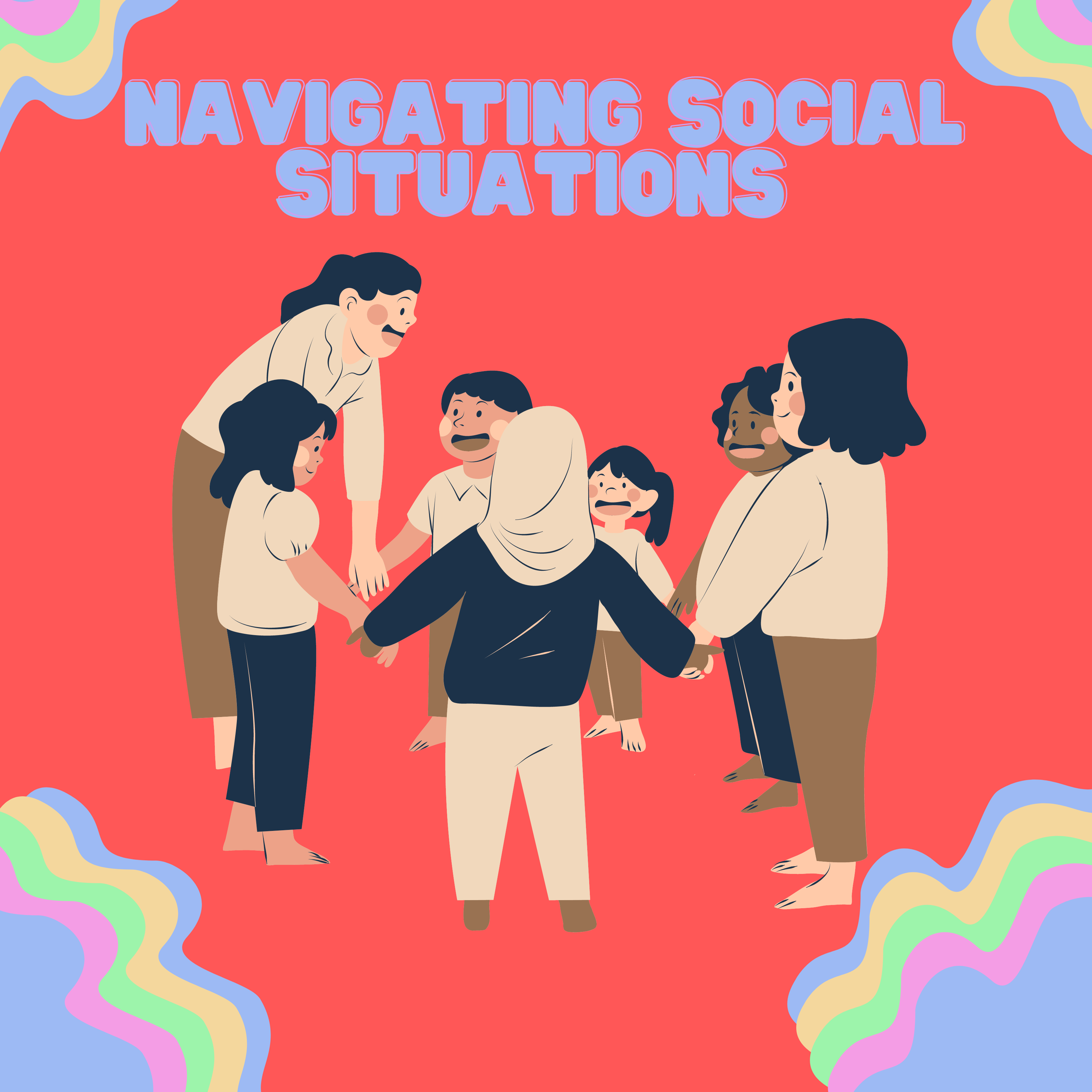Hello, extraordinary explorers of this big and fascinating world! We are all here because we're unique in our own ways. You, being an autistic individual, have an exceptional way of viewing and experiencing the world. That's a superpower that sets you apart. But we understand that sometimes, certain social situations might seem like a tricky puzzle. So, here's a guide to help you piece those puzzles together, one interaction at a time.
Tip 1: Start with the Familiar
Social situations can sometimes be overwhelming because they involve a lot of new information. A great starting point is to practice social skills with your family and friends. Try starting conversations, making jokes, or asking about their day. This will give you confidence in a controlled environment before you venture out into the wider world. Practice and learning is the key!
Tip 2: Picture It!
Visuals can be powerful tools. They can help you understand complex concepts. If you are going to a party or a gathering, try to visualize the place, people, and possible activities. This will allow you to prepare before you venture out. Your parents, teachers, or friends can help you create these visuals. This tool will make the social situation less intimidating.
Tip 3: Understand Feelings and Emotions
Emotions can be confusing, but they are essential in social situations. Sometimes, people don't say what they feel, but their face does. You can try exploring emotions through books, movies, or even emojis. What helped my brother was watching videos online and reenacting it with me. Try to identify different facial expressions and link them to feelings. It's like learning a new language, the language of emotions, and every master was once a beginner!
Tip 4: Practice makes Progress
Practicing social situations can help you navigate them better. Role-play is an excellent tool for this. You can re-enact different scenarios with your friends or family. For example, ordering food at a restaurant, asking for help in a store, or joining in a game at recess. My brother wanted to practice certain scenes he saw on YouTube which helped him become more comfortable with others. The more you practice, the more comfortable you'll become.
Tip 5: It's Okay to Take Breaks
We all need breaks, and it's perfectly okay to take one when you need it. If a situation is becoming too much, find a quiet place, take deep breaths, or engage in an activity that calms you down. I would sit down with my brother when he asked me to and we would count down from ten to one until he felt comfortable going back into the situation he once was in. Remember, taking care of your mental wellbeing is as important as learning new skills.
Tip 6: Discovering Shared Interests
Finding others who share your interests can open up a whole new world of friendships and social opportunities. Begin by identifying what you enjoy. It could be a hobby, a certain genre of music, movies, books, or sports. Once you've figured that out, search for communities centered around these interests, both online and offline. It could be a club at school, a local community group, or online forums and social media groups. Sharing and discussing common interests often makes it easier to communicate and connect. For example, if you love dinosaurs, joining a dinosaur enthusiast group can be a great starting point. The key is to take that first step towards engagement. Remember, it's okay if it takes time or if the first few attempts don't work out. Patience and persistence are your best allies. It's all about finding your tribe where you can comfortably be yourself and enjoy shared passions.
Tip 7: Be You, Be Proud
Remember, everyone has challenges and strengths. Your autism gives you a unique perspective on the world. This is your strength. You may experience things differently, but that doesn't make your experience any less valid or valuable. Embrace your differences and be proud of them. The world is a colorful place because of its diversity!
My brother's abilities, strengths, weaknesses, and view of the world makes him Andrew. It is who he is and that is what I know and love about him so accept who you are and do not be pressured by stereotypes.
Being able to navigate social situations is like learning to navigate a vast sea. It may seem daunting at first, but with the right tools and a good amount of practice, you'll become an expert navigator. Always remember that you are capable, you are unique, and you have a lot to offer the world. Happy exploring, my friend! Remember Together We Can Make A Difference, One Piece At A Time.


